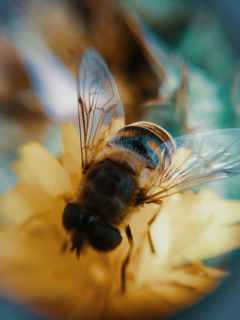
When I was little, my mother used to recite these lines:
Where the bee sucks, there suck I;
In a cowslip’s bell I lie;
There I couch when owls do cry.
On the bat’s back I do fly
After summer merrily.
Merrily, merrily shall I live now
Under the blossom that hangs on the bough.
The sound and rhythm of the words is so deeply familiar to me that I am sure I heard them many times before I could actually speak and understand the language.
It’s a little song, spoken by Ariel, a spirit, at the end of Shakespeare’s play, The Tempest. He is celebrating being set free. The song is about being in tune with nature, its life and rhythms. Delightful to listen to, it has a beguiling rhythm and wonderful, musical sound. Personally, I have always loved the second line. Notice how the first five lines end with the same rhyme (we have to allow for changes in pronunciation to include ‘merrily’ here).
Simple ideas, simple, pretty techniques. But for me, these lines carry a value greater than their poetic charm. My mother learned to recite various lines from Shakespeare when she was at primary school, during the Second World War. I suspect the small children were encouraged to dance as they sang the lines. She remembered them all her life, and of course when she had children of her own they became part of her nursery rhyme repertoire. No-one told her at the time that she was learning Shakespeare; in fact, it wasn’t until I became a Shakespeare fan as a teenager that I pointed out how much Shakespeare she had been, sometimes unwittingly, quoting at us!
And what is this greater value? Well, it’s about Shakespeare being available to everyone. Even small children. If we let go of the idea that Shakespeare’s works are difficult, must be studied, and should be thoroughly understood, many of us are able to connect with the beauty of the words, the poignancy of the images, and enjoy this great heritage.
As most of us know, our language, the English we speak today, is full of phrases and quotes from Shakespeare. If we talk about a ‘wild goose chase’ or a ‘green-eyed monster,’ we are quoting Shakespeare. That being so, I feel strongly that we should all be helped and encouraged to connect with Shakespeare’s language. Maybe it could begin with teaching small children to recite some of his loveliest lines.